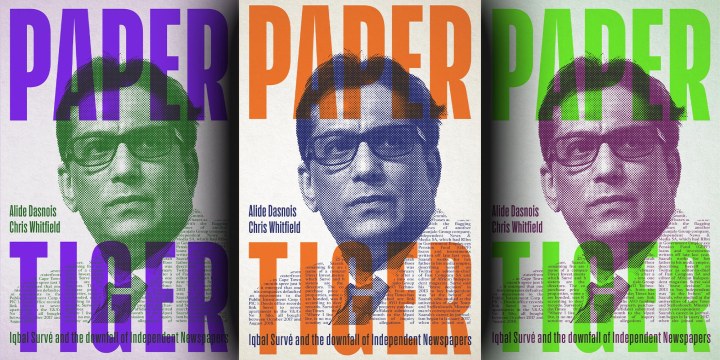RIGHT OF REPLY
‘The Irish’ converted faltering Independent newspapers into money-makers

The group was barely profitable: more than 80% of profits, such as they were, were made by The Star in Johannesburg. The Cape Times, the Pretoria News and The Natal Mercury were loss-makers and in danger of closing — or merging with the Argus in the case of the Cape Times.
Before they become enshrined in legend, let me respond to Rebecca Davis’s review of the excellent Alide Dasnois/Chris Whitfield book Paper Tiger and the various unflattering references to “the Irish”.
I arrived in South Africa in October 1994 to run, at Tony O’Reilly’s request, what was then Argus Newspapers, consisting of 15 regional newspapers and 3,000 staff based in five cities. I was the vanguard of “the Irish” — in fact, I was the only one — and found a hopelessly old-fashioned company, with 14 white male editors and one Indian (editing an Indian paper in Durban), and very uneven journalism which still operated on stone-age technology.
The group was barely profitable: more than 80% of profits, such as they were, were made by The Star in Johannesburg. The Cape Times, the Pretoria News and The Natal Mercury were loss-makers and in danger of closing — or merging with the Argus in the case of the Cape Times. The Star, the company’s flagship, was still largely an evening newspaper although evening newspapers, with a very few exceptions, in every city in the world were a thing of the past.
I had been a journalist in London all my life and to my eye the standard of editorial was remarkably high, but also very uneven, and there was an enormous amount of repetition and overlap. I remember being struck by the fact that each newspaper had its own motoring correspondent who worked on the principle that every new car performed differently in Durban as opposed to Cape Town or Johannesburg.
The same was true of film critics. Every newspaper had its own business editor covering the same company results and every editor insisted on sending his own sports reporter to cover international rugby and football matches. The Argus Group, basically because of its history, was probably the only remaining newspaper group in the world which did not centralise political, business and national news coverage. UK groups such as Thomson had been doing it for 30 years and US groups for even longer, with no loss of editorial quality.
Ms Davis says “the Irish” never invested. Actually we did. In my first year, we launched Business Report, grouping all our business staff into a single unit, which appeared in our four morning papers, more than quadrupling the financial advertising across the company and single-handedly turning the Cape Times, Pretoria News and The Mercury into profitable newspapers. I brought back Peter Bruce, one of the finest financial journalists it has been my pleasure to work with, to edit it and it became a world-class product.
Under Shaun Johnson we launched the Sunday Independent as a serious upmarket weekly without which Moshoeshoe Monare, who she quotes as saying we turned the group into a “cash pot” for the rest of the international group, wouldn’t have had a job. We invested heavily in new technology, upgraded the admittedly rather ancient presses to add colour, and introduced a new standard of world-class magazines, starting with House & Garden. We also launched Isolezwe, a Zulu-language newspaper which rapidly became one of the highest circulation newspapers in the country.
I returned to London in 2002 after eight years at the helm, during which time I never heard Tony O’Reilly complain about his unflattering pictures in the paper. Unlike the current proprietor, he doesn’t do complaining — that story is a myth. By then we had more black editors, including women, than white and many of the senior managers were also black.
Like everyone else, I grieve for what has happened to the quality of Independent newspapers in recent years and miss the quality of journalism brought by Chris, Alide, Shaun, Peter, John Battersby, James Lamont and many others. DM
Ivan Fallon is a South Africa-based media executive and former Chief Executive of Independent News & Media, previous owners of The Independent (UK).

















 Become an Insider
Become an Insider